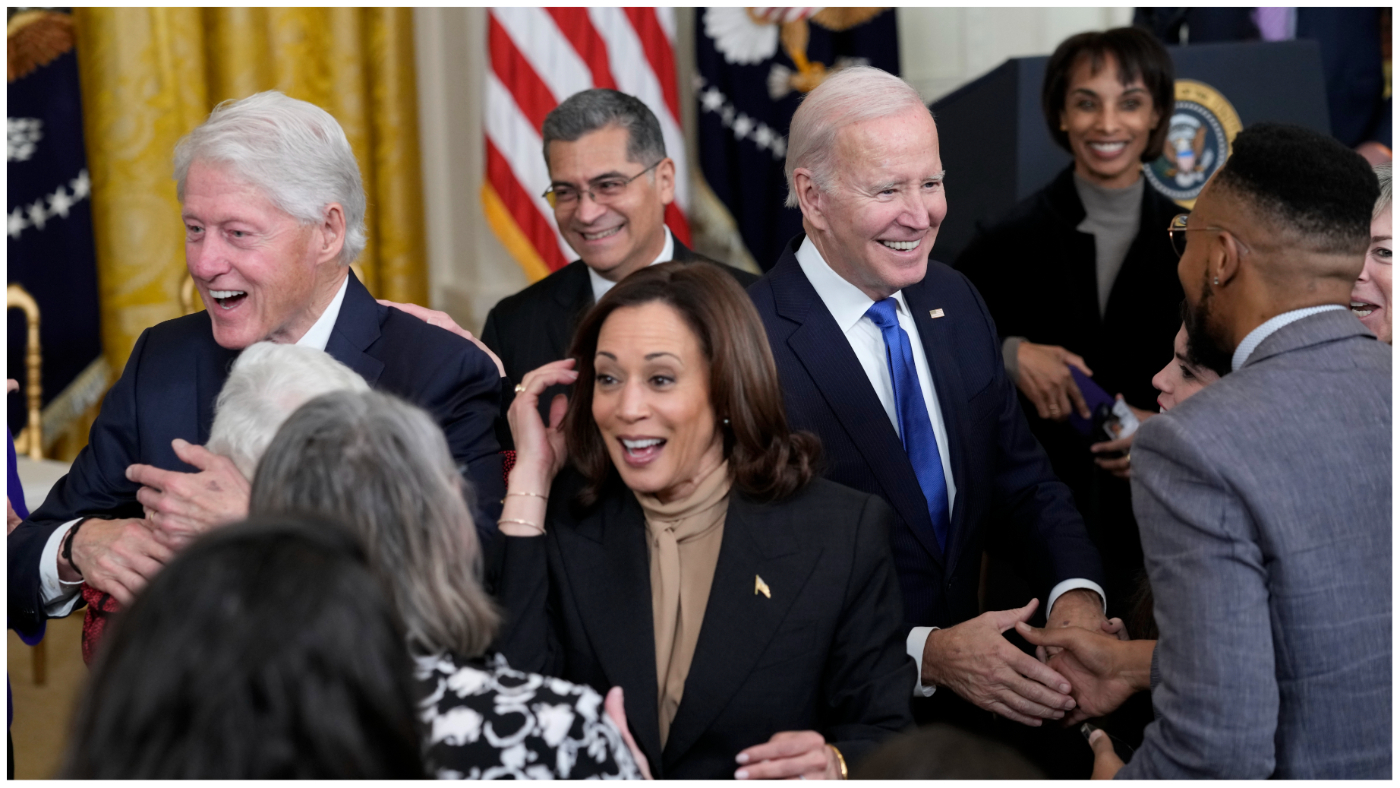|
|
Alliance Celebrates Black History Month with an Eye on Voting Rights |
|
As the nation marks Black History Month throughout the month of February, Alliance President Robert Roach, Jr. said this week that we must build on the achievements of the Reverend Martin Luther King, Jr. and his work with President Lyndon Johnson during the 1960’s. Dr. King’s activism led to passage of the Civil Rights Act of 1964 and the Voting Rights Act in 1965. |
|
|
|
"Black History Month is an opportunity to celebrate our heroes and our victories," said President Roach. "Dr. King put the rules in place that allowed Barack Obama to be elected our first Black President. While we have made tremendous progress in the fight for civil rights, the struggle for equality and justice continues – particularly in areas like voting rights, fair housing and education.”
Voting rights activists are closely watching two cases on the Supreme Court docket this year. One case turns on the question of whether the state of Alabama violated the Voting Rights Act when it approved a congressional map that created one majority Black district, rather than two.
A second case involves a dispute over North Carolina's 14 congressional districts, and it could allow state lawmakers nationwide to upend election laws. The Supreme Court heard oral arguments in both cases last year and is expected to issue its rulings before the term ends in June.
“In addition to voting rights, Black Americans and other minorities also still need protection from discrimination in housing, whether they are renting or buying a home, getting a mortgage, or seeking housing assistance,” said President Roach.
“Ted Kennedy's famous quote from 1980 continues to resonate today,” President Roach added. “Senator Kennedy said, 'For all those whose cares have been our concern, the work goes on, the cause endures, the hope still lives, and the dream shall never die.’” |
|
President Roach Joins Family Leave Anniversary Event at White House
|
|
President Roach attended a White House Celebration with President Biden, Vice President Kamala Harris and former President Bill Clinton in honor of the 30th anniversary of the Family and Medical Leave Act of 1993 Thursday. |
|
|
Former President Bill Clinton, Vice President Harris and President Biden greets people after an event in the East Room of the White House in Washington, Thursday, Feb. 2, 2023, to mark the 30th anniversary of the Family and Medical Leave Act. |
|
“We have come so far on family leave over the last 30 years,” said President Roach. “But as with many causes, more needs to be done. The adult children and grandchildren of our oldest and sickest family members must be able to fulfill their roles as caretakers when necessary. In addition to our moral obligations as a society, that ability is a vital component of working families’ ability to achieve economic security.” |
|
President Biden, Speaker McCarthy Meet About Raising the Debt Ceiling |
|
The White House hit back after Speaker Kevin McCarthy (R-Calif.) said on Sunday that he wants to “strengthen” Medicare and Social Security, with administration officials stressing that the House GOP leader and his conference actually want to slash spending on the programs.
“For years, congressional Republicans have advocated for slashing earned benefits using Washington code words like ‘strengthen,’ when their policies would privatize Medicare and Social Security, raise the retirement age, or cut benefits,” White House spokesman Andrew Bates said in an emailed statement.
McCarthy met with President Biden at the White House about the need to raise the debt ceiling on Wednesday. Afterwards, McCarthy said that he and Biden could negotiate a spending deal – but the real test may come in McCarthy’s negotiations with his own Republican conference. Even with billions in cuts to other programs, reaching the stated GOP goal of FY 2022 budget levels without touching Social Security and Medicare seems nearly impossible, Democrats said.
Also, last Friday two dozen Senate Republicans, led by Utah Senator Mike Lee, sent a letter to President Biden vowing to vote against any bill to increase the debt ceiling that does not include "real structural spending reform that reduces deficit spending and brings fiscal sanity back to Washington.”
“Congress must reject the threats to cut Social Security, Medicare and other critical social programs for seniors,” Richard Fiesta, Executive Director of the Alliance, said. “We cannot, under any circumstances, allow extremist Republicans to dictate destructive policies that would be harmful not only to seniors but to all Americans.”
The Alliance’s new position paper on increasing the debt ceiling is available here. |
|
New Study Identifies 6 Ways to Slow Memory Decline, Lower Dementia Risk |
|
A new study of more than 29,000 older adults has found that six habits — from eating a variety of foods to regularly reading or playing cards — are linked with a lower risk of dementia and a slower rate of memory decline.
The six “healthy lifestyle factors” were associated with better cognitive outcomes in older adults in a large Chinese study conducted over a decade and published in the BMJ (British Medical Journal) Wednesday. The list includes eating a balanced diet, exercising the mind and body regularly, having regular contact with others, and not drinking or smoking.
While researchers have long observed a link between dementia and factors such as social isolation and obesity, the size and scope of the new study adds substantial evidence to global research suggesting that a healthy lifestyle can help brains age better.
“While it may be difficult to do everything the study suggests, the more healthy lifestyle choices one makes, the better the odds of keeping memory decline to a minimum,” said Joseph Peters, Jr., Secretary-Treasurer of the Alliance. |
|
Kaiser Health News: Government Lets Health Plans That Ripped Off Medicare Keep the Money By Fred Schulte |
|
Medicare Advantage plans for seniors dodged a major financial bullet Monday as government officials gave them a reprieve for returning hundreds of millions of dollars or more in government overpayments — some dating back a decade or more.
The health insurance industry had long feared the Centers for Medicare & Medicaid Services would demand repayment of billions of dollars in overcharges the popular health plans received as far back as 2011.
But in a surprise action, CMS announced it would require next to nothing from insurers for any excess payments they received from 2011 through 2017. CMS will not impose major penalties until audits for payment years 2018 and beyond are conducted, which have yet to be started.
Read more here. |
|
Thanks for reading. Every day, we're fighting to lower prescription drug prices and protect retirees' earned benefits and health care. But we can't do it without your help. Please support our work by donating below. |
|
|
|
|
Alliance for Retired Americans | 815 16th Street, NW | Washington, DC 20006 | www.retiredamericans.org




